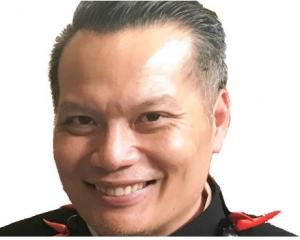The Minister of Maori Affairs and co-leader of the Maori Party, Pita Sharples, expressed another claim for a uniquely Maori preference in a recent speech, one that if it gained support would threaten the foundations of the form of democracy that has been practised in this country since 1945.
Dr Sharples said he thought the idea of one vote, one person was an "artificial concoction" and was being used in the present context to block exclusively Maori seats on the proposed new Auckland city council.
The National-led Government refused the wishes of the Maori Party and Ngati Whatua, but the Labour Party has said, had it been in government, Maori would have got two seats voted for by those on the Maori electoral roll.
The Royal Commission on Auckland Governance had also recommended two members on the 23-member council be elected from the Maori electoral roll, and proposed another member be appointed by a Mana Whenua Forum, the members of which would be appointed by mana whenua from the district.
Having lost the first round, the Maori Party now wants an independent Maori statutory board to advise the council on policy.
The argument for an additional tribal vote is not a new one, and indeed dedicated Maori seats on local councils were permitted by the Local Government Act - councils themselves can make the decision - passed by the Clark government.
Dr Sharples commented: "It seems that [the] Maori principles that guaranteed that Auckland could survive and grow would be far more important, even in today's times, than such artificial political concoctions such as one vote for one person, or democratic elections which were the principles that were cited to decline the two seats on the super-city council.
The Maori kaupapa were principles that promoted equity and inclusiveness, surely the ideals of a civilised society.
We must begin to recognise that democracy has many expressions, many ways of mobilising voices and representation, rather than statically holding on to dominant axioms."
He further argued that since the signing of the treaty "the interest of the settlers has had to be taken into account" but public rights "cannot be allowed to prevent us living as Maori in our own lands.
The guarantee of rangatiratanga protects our customary rights and interests".
Dr Sharples wants to ride two horses at the same time.
He accepted the Maori Party now has power and influence as a result of entering into coalition with the National Party - a coalition arrived at on the one person, one vote principle - and acknowledged that the coalition also enjoys popular support and that numerous gains had been achieved promoted by the Maori Party.
But he thought it important "that we recognise impediments to good race-relations, such as prejudice, cultural arrogance, and institutional racism".
The thrust of his speech clearly implied that for tribal Maori, democracy does not work and does not sit comfortably with Maori cultural concepts.
Historical fact suggests this argument does not wash in national politics, since Maori candidates have long been elected to general seats and the specific provision of Maori electorates has ensured at least a foothold in Parliament.
The notable absence of Maori at local body level has been regrettable, but why that is so cannot merely be attributed to "prejudice, cultural arrogance, and institutional racism".
Dr Sharples may have been musing aloud, as he often does, but provided little acknowledgement of the changes that have been made in the franchise over recent years, including the reduction of the voting age to 18, and the advent of MMP, both of which were designed to encourage a greater involvement in the democratic process.
In the case of the Maori Party, with just 2.39% of the party vote, it is remarkable that it enjoys the level of real political influence it now does within the governing coalition.
It has been - it need hardly be said - a fortunate prizewinner of that artificial concoction.
Nevertheless, Dr Sharples had a valid point if he was arguing that a minority's voice is not always heard and that when it is ignored the implied equivalence of "one person, one vote" is not functioning.
But should the number of electorates reflect ethnicities in proportion within the voting age population? On what basis should ethnicity be determined for electoral purposes, if at all? Do the Treaty of Waitangi clauses really mean a Parliament of half Maori and half non-Maori? The opportunity for further possible electoral reform is about to arise and is the appropriate platform for these, and issues such as Dr Sharples provocatively raises, to be debated.






